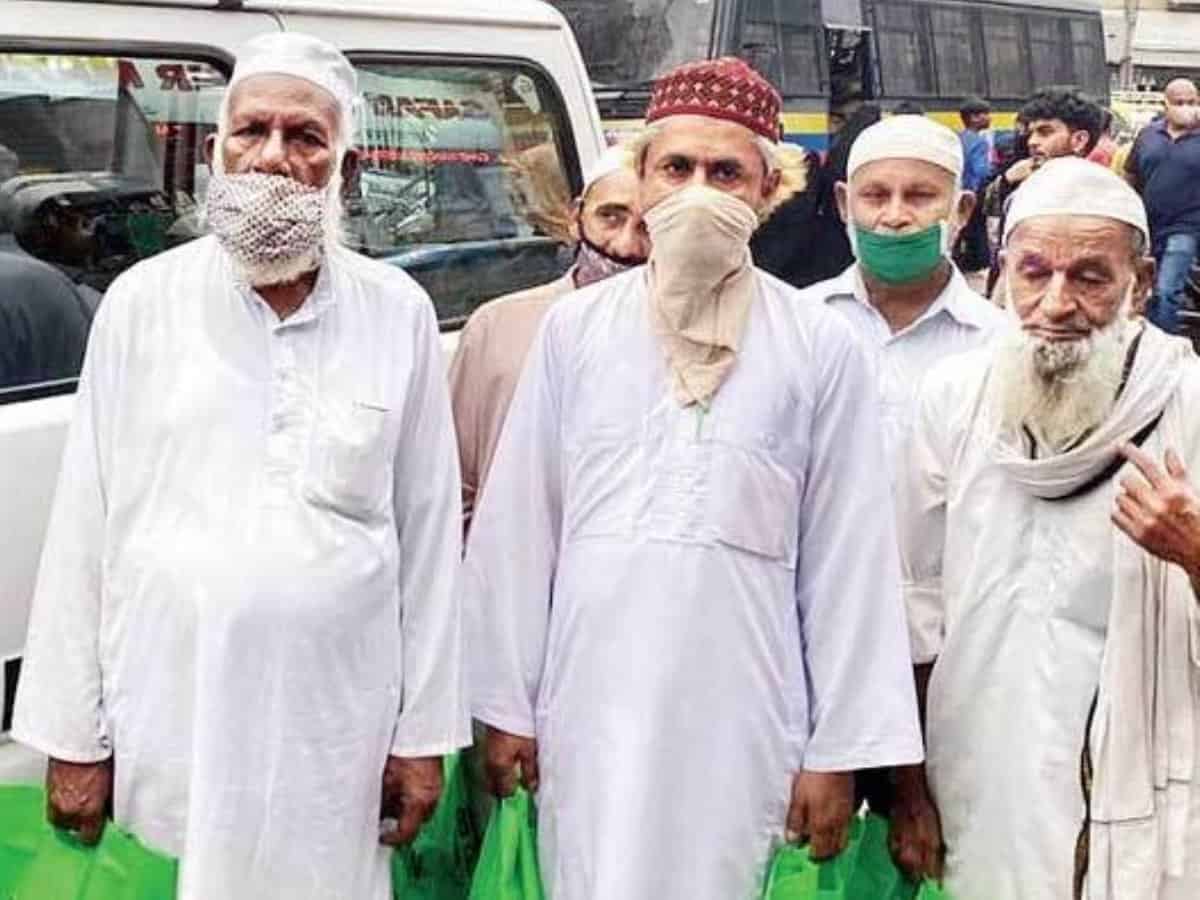Dharavi: For nearly six months, the call to prayer in the evening rounded off with a call to action in Dharavi: the crackling voice on the mosque’s loudspeaker implored residents to stay at home for the sake of their country while also warning of a social boycott for violating the lockdown. The tactic worked.
COVID-19 hotspot
Dharavi’s stellar turnaround from being a Covid-19 hotspot to offering a template on how to contain the pandemic—“tracing, tracking, testing and treating”—couldn’t have been possible without community action, particularly from an unsung group of 180 maulvis and maulanas of 500-odd mosques in the slum who not only dispelled myths about Covid-19 but also urged people to look out for each other.
Frontline workers struggling to stop the virus from barrelling through Asia’s largest and densest slum—6.5 lakh people are spread over 2.5 sq km—realised early on that community leaders could play a significant role in creating awareness and persuading residents to follow authorities’ directives. Muslims comprise around 30 per cent of Dharavi’s population. Meraj Husain, who spearheaded the initiative from NGO Bhamla Foundation with the help of the maulvis, maulanas and young volunteers, said community members took it upon themselves to create awareness after the first case was reported in Labour Camp on April 1. “We wanted to ensure the virus spared Kumbharwada and Kuthiwadi, which are more densely populated.”
Bhamla Foundation
Asif Bhamla, founder of Bhamla Foundation, said the clerics’ biggest task was to convince Covid-19 naysayers and to stop people from venturing out during Ramzan, Eid and Badi Raat. “A large number of people defer to maulvis when it comes to life decisions.
So, they listened when the maulvis reminded them that their religious faith also lays stress on protecting the country and its people, and urged them not be careless so as to ruin its chances of beating the virus,” he said. The clerics, who made door-to-door visits across the slum cluster, changed strategies as the need arose. The Covid-19 cynics, who refused to stay in, were frightened into obedience. “The maulvis carried photographs of youngsters from the community who had died of Covid-19 and told disbelieving families of the horrors that the virus had wreaked upon them. This deterred many from going outside their homes,” said Bhamla.
Lockdown restrictions
In the evenings, they changed tack. From invoking the fear of God to warning of a social boycott, they asked residents after the azaan to abide by the lockdown restrictions and also let them know that civic authorities and social workers would provide them with essential commodities right at their doorsteps. “Over a 5-minute message through the loudspeaker, we asked people to observe the curfew, to keep children inside, and to step out only when needed,” Maulana Farooqi Shaikh of Jama Masjid in Dharavi.
Husain said to prevent people from venturing out during religious festivals, the volunteers distributed fruits and food to every community household.
The strategy worked. Dharavi used to record 43 cases a day on an average in May and even managed to flatten the curve. Of the 3,239 cases, only 176 are still active. Husain said the initiative went on till the first week of September. With more lockdown relaxations in place, people began going back to work and the clerics were no longer required to press on with the message. But Husain suggested that if the cases rise significantly again, the clerics could be roped back in.
Kiran Dighavkar, assistant commissioner of G-North ward, agreed that the maulvis and maulanas played a crucial role in fighting Covid-19. They had helped out earlier in a similar manner during the Swachh Bharat Abhiyaan. “What maulvis say is considered the last word and taken as a directive. In a slum like Dharavi, where social distancing wasn’t possible, their message to the people on following safety protocols helped us contain the pandemic.”

